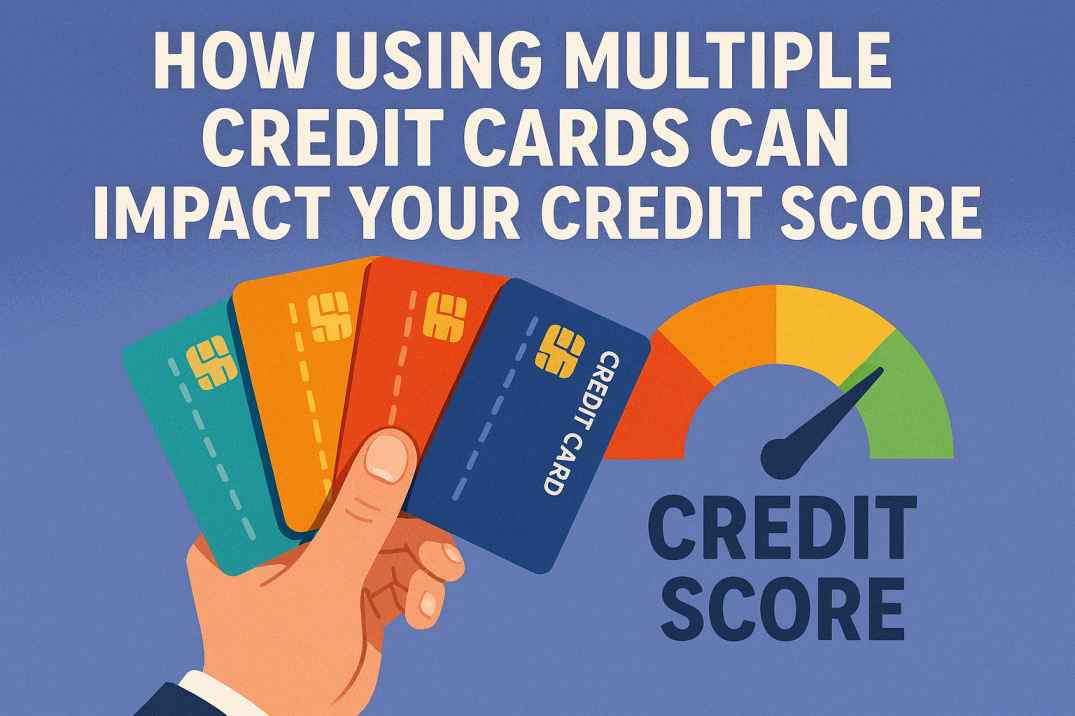Credit cards are powerful financial tools when used wisely. However, having multiple credit cards can influence your credit score in both positive and negative ways. Understanding how this works is essential for managing your financial health effectively.
1. The Role of Credit Utilization
Credit utilization refers to the percentage of your available credit that you’re currently using. It’s one of the most significant factors affecting your credit score.
Explanation:
When you have multiple credit cards, your total available credit increases. If you maintain low balances across these cards, your credit utilization ratio improves, which can positively impact your score. However, maxing out several cards can quickly damage your score.
2. Payment History Across Multiple Accounts
Your payment history makes up about 35% of your credit score.
Explanation:
Having multiple cards means more due dates to track. Missing payments on any card—even by a few days—can hurt your score. On the flip side, consistently paying all your cards on time can strengthen your credit profile.
3. Average Age of Credit Accounts
The age of your credit accounts contributes to your credit score.
Explanation:
Opening new credit cards lowers the average age of your accounts, which can negatively affect your score. If you frequently open new cards, it may signal risk to lenders. Keeping older accounts active helps maintain a healthy credit history.
4. Hard Inquiries from New Applications
Each time you apply for a new credit card, a hard inquiry is made on your credit report.
Explanation:
Too many hard inquiries in a short period can lower your score temporarily. Lenders may view this as a sign of financial distress or overextension.
5. Credit Mix and Its Benefits
Credit mix refers to the variety of credit types you have, such as credit cards, loans, and mortgages.
Explanation:
Having multiple credit cards can improve your credit mix, especially if you also have other types of credit. A diverse mix shows lenders you can manage different forms of debt responsibly.
6. Risk of Overspending
More credit cards can lead to more spending opportunities.
Explanation:
If not managed carefully, this can result in higher balances and increased debt. High balances not only affect your credit utilization but can also lead to financial strain and missed payments.
Conclusion
Using multiple credit cards can be beneficial if managed wisely. It can improve your credit utilization, diversify your credit mix, and build a strong payment history. However, it also comes with risks like missed payments, overspending, and reduced account age. The key is to use credit strategically and stay informed about how your actions affect your score.




